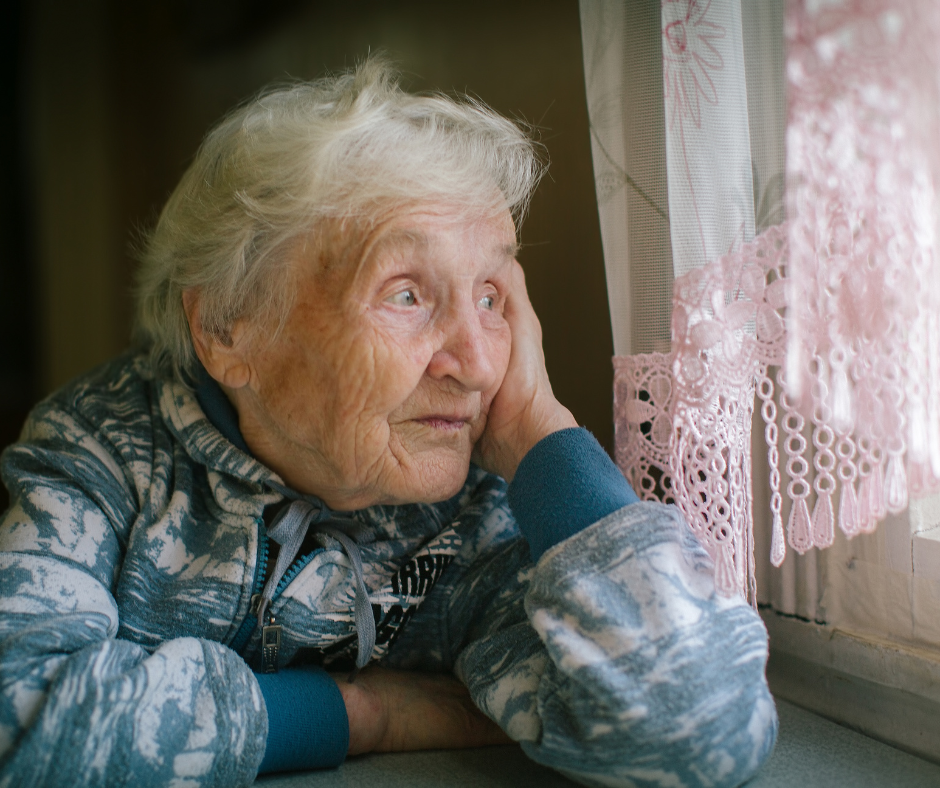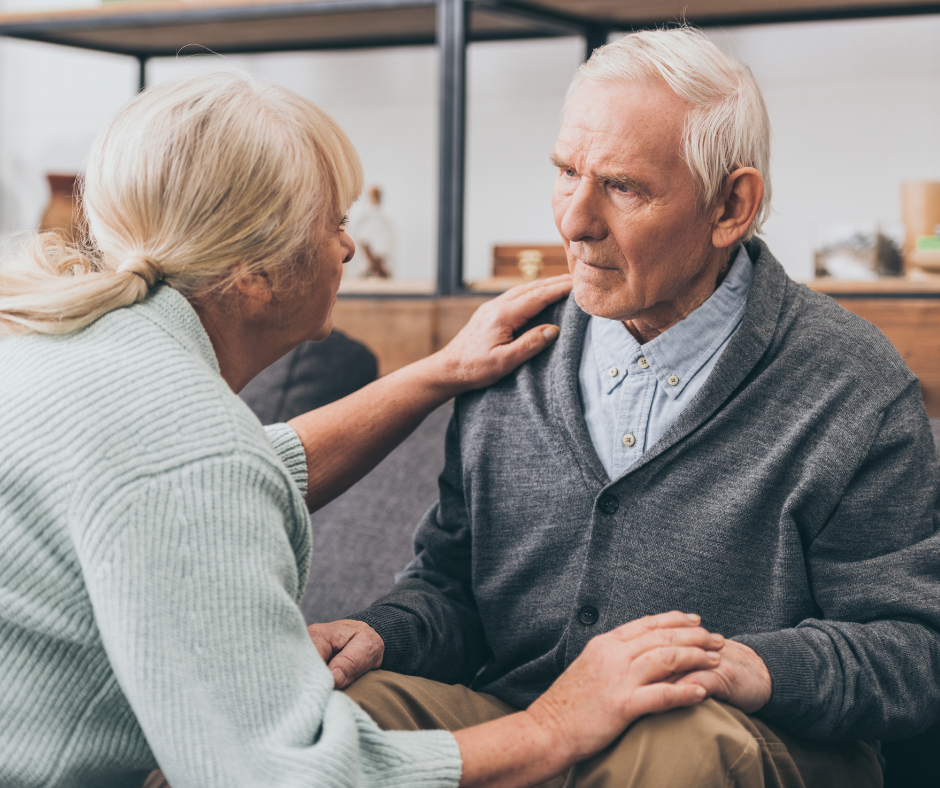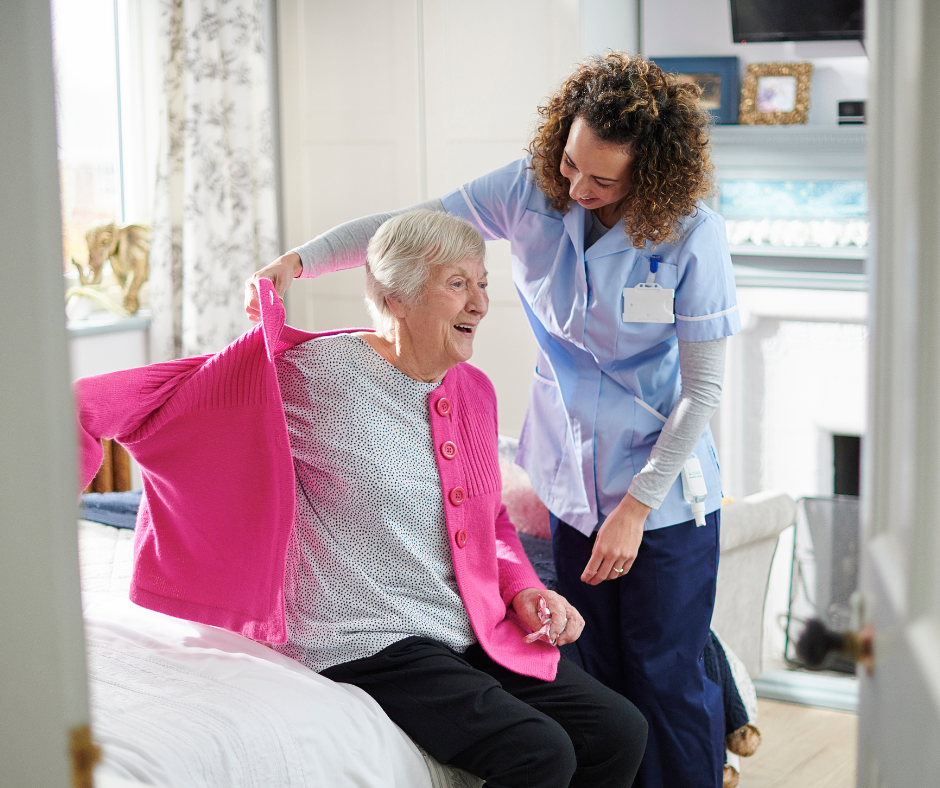Learn when it’s no longer safe for a senior with dementia to live alone. Get expert insight on risks, red flags, and care options from Serving Hands Senior Care.
A dementia diagnosis often feels like the ground shifting beneath your feet—especially for families trying to decide how to best support a loved one. One of the most difficult and pressing questions is this: Can a senior with dementia live alone safely?
The answer isn’t black and white. Dementia progresses differently in every person, and the early stages often come with moments of clarity mixed with confusion. While some seniors can remain independent for a while, the risks of living alone grow with time. Knowing when—and how—to step in can make all the difference in preserving both dignity and safety.

Understanding Dementia and Independence
Dementia is more than forgetfulness. It affects decision-making, problem-solving, spatial awareness, and the ability to recognize danger. While someone in the early stages may seem capable, subtle changes in judgment or memory can quickly escalate into real-world hazards.
The Alzheimer’s Association notes that even in the early stage, people may struggle with routine tasks, lose track of time, or forget appointments. In the middle and later stages, these challenges become more pronounced—and often dangerous if left unmonitored.
Questions That Guide the Decision
When evaluating whether a senior with dementia can continue living alone, families should look beyond the diagnosis and focus on function and risk. Ask yourself:
- Is your loved one eating well and remembering meals?
- Are medications taken on time and in the correct dose?
- Can they safely manage appliances like the stove or kettle?
- Have there been incidents of wandering, confusion, or falls?
- Do they remember how to call for help in an emergency?
A single “no” doesn’t mean a change is urgent—but a pattern suggests that living alone may no longer be the safest option.
When It’s No Longer Safe to Be Alone
Recognizing the tipping point is one of the most painful moments for any family caregiver. You may feel guilty or torn—but know that acknowledging your loved one’s increasing needs is an act of compassion, not betrayal.
Red flags to watch for include:
- Forgetting to turn off appliances
- Unexplained bruises or frequent falls
- Doors left open or wandering outside
- Mail piling up or bills going unpaid
- Confusion about time, place, or identity
- Changes in mood, hygiene, or eating habits
If these signs are present, it may be time to explore care options that ensure safety while maintaining as much independence as possible.

Supporting Seniors Who Want to Stay at Home
It’s natural for seniors to resist change. Home is comfort, memory, and identity. If your loved one is in the early stages of dementia and determined to remain home, there are steps you can take to make this safer—but supervision is key.
1. Home Safety Modifications
- Install automatic shut-off devices for stoves and space heaters, secure stairways, and remove trip hazards. Label drawers and rooms clearly, and add grab bars in bathrooms.
2. Medication and Meal Management
- Consider medication dispensers with alerts or caregiver-administered doses. Set reminders for meals or arrange meal deliveries if cooking becomes unsafe.
3. Establish a Routine
- Dementia thrives on unpredictability. Create daily routines for meals, rest, hygiene, and activities. Familiarity helps reduce anxiety and confusion.
4. Use Technology Thoughtfully
- GPS trackers and video check-ins can help families monitor their loved one’s well-being from afar. However, tech should supplement—not replace—human care.
When More Support Is Needed
As dementia progresses, full independence becomes increasingly risky. At that point, it’s time to consider alternatives:
- In-home care services offer daily assistance while allowing seniors to stay in familiar surroundings.
- Adult day programs provide structured, supervised care during the day, giving family caregivers time to rest.
- Assisted living or memory care facilities specialize in round-the-clock support, ensuring safety, engagement, and medical oversight.
At Serving Hands Senior Care, we offer compassionate dementia care that honors your loved one’s individuality. Whether it’s in-home assistance or connecting you to other services, our team is here to walk this journey with you.

Creating a Family Care Plan
Caring for someone with dementia is a marathon, not a sprint. It requires collaboration, clear communication, and regular reassessment. Gather as a family, talk honestly with your loved one, and involve medical professionals when needed.
You don’t have to do it alone. Visit our website for support links to help you make informed decisions every step of the way.
A Final Word of Encouragement
If you’re reading this, chances are you’re carrying a heavy weight. Deciding whether your loved one can live alone isn’t just a practical decision—it’s an emotional one, filled with love, fear, and hope.
Know this: recognizing that your loved one needs help is not giving up. It’s showing up in a deeper way than ever before.
“The best way to care for someone with dementia is not to correct them, but to connect with them.”—Teppa Snow , dementia care expert and advocate
Need help navigating care decisions?
Contact us today for a free consultation or explore our in-home dementia care services tailored to your family’s needs.
- Why Inclusive Language Matters in Dementia and Senior Care - November 25, 2025
- Can Seniors with Dementia Live Alone? - June 19, 2025
- Tail-Wagging Therapy:How Dogs Can Lift Senior’s Spirits - May 28, 2025


